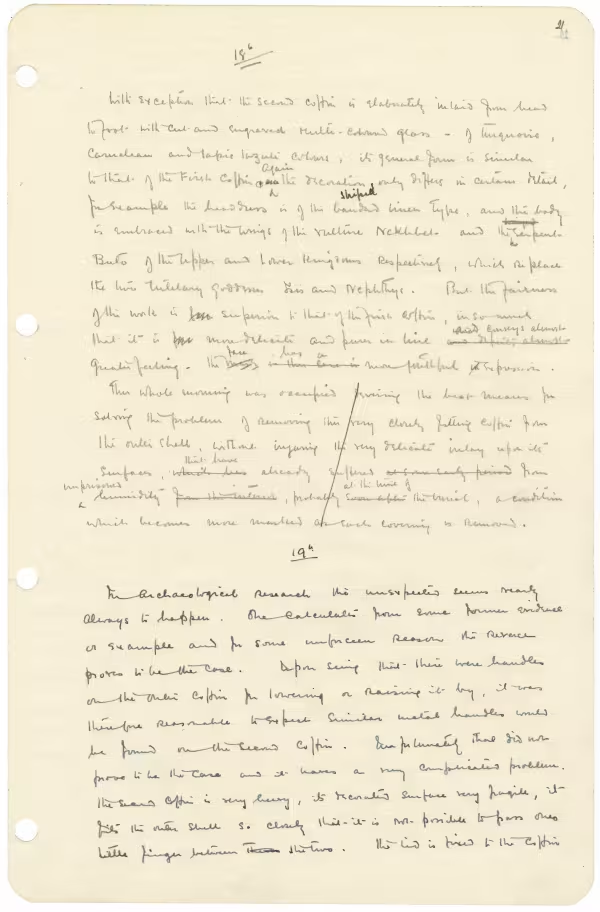TAA i.2.3.21

© Griffith Institute,
University of Oxford
18th {October}
With exception that the second coffin is elaborately inlaid from head
to foot with cut and engraved multi-coloured glass - of turquoise,
carnelian and lapis lazuli colours, its general form is similar
to that of the First Coffin. and <Again> the decoration only differs in certain detail,
for example the headdress is of the banded <striped> linen type, and the body
is embraced with the wings of the vulture Nekhbet and the <winged> serpent
Buto of the Upper and Lower Kingdoms respectively, which replace
the two tutelary goddesses Isis and Nephthys. But the fairness
of the work is far superior to that of the First Coffin, in so much
that it is far more delicate and purer in line and depicts almost <and conveys almost>
greater feeling. The mask <face> in this case is <has a> more youthful in expression.
This whole morning was occupied devising the best means forsolving the problem of removing this very closely fitting coffin fromthe outer shell, without injuring the very delicate inlay upon itssurfaces, which has <that have> already suffered at some early period from<imprisoned> humidity from the interior, probably some after <at the time of> the burial, a conditionwhich becomes more marked as each covering is removed.
19th
In archaeological research the unexpected seems nearly
always to happen. One calculates from some former evidence
or example and for some unforseensic reason the reverse
proves to be the case. Upon seeing that there were handles
on the outer coffin for lowering or raising it by, it was
therefore reasonable to expect similar metal handles would
be found on the second coffin. Unfortunately that did not
prove to be the case and it leaves a very complicated problem.
The second coffin is very heavy, its decorated surface very fragile, it
fits the outer shell so closely that it is not possible to pass ones
little finger between them the two. The lid is fixed to the Coffin